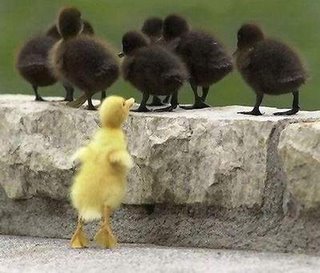This is apparently a travesty, because it's clear to said fans (who are "protesting," to be clear - not on the streets, but on various social media platforms - but are nonetheless using the scant minutes afforded to them by this little life to voice outrage on this issue in particular) that this guy clearly is more deserving of the title:
And okay. Ryan Gosling is hot, too. And he's got this whole Chuck-Norris-for-hipsters vibe that Bradley Cooper (the shirtless one, above) cannot match.
But here's the thing ... or rather, three things.
- Bradley Cooper is hot. Sorry girls, but it's true. Getting upset because a gossip rag calls him sexy makes you look not just shallow and seriously underutilized by the world around you - it just makes you look dumb, period.
- It also makes you look shallow and seriously underutilized by the world around you. C'mon, with all the things you could be upset by, you choose this as your cause? Seriously. Get a life.
- There might be something to get upset about here. But it's not what you think it is.
People Magazine has been handing out this title since 1985, pretty much on a yearly basis with a few hiccups. All in all, 26 guys have earned the title. Of these 26 specimens of hot-blooded testosterone, 25 of them have been white (the sole exception was Denzel Washington, back in 1996 - a full 15 years ago).
Big deal, says you. But it is a big deal, says I. The media has about as much influence as we collectively allow it to have - but sadly, at least in the USA, we grant it quite a bit. And with great power, as Spider-Man would remind you, comes great responsibility. And in this case, People has failed in its responsibility.
Mind you, I'm referring to the "Sexiest Man Alive" case, not the specific Bradley Cooper case. Because, as I've already said (but it bears repeating, somehow), Bradley Cooper is hot. But in the larger context, People has been, for the past fifteen years at least sending a very clear message that only white people are "sexy."
Again, says you, big freakin' deal. It's not like they're saying that white people are more intelligent, more talented, more moral, or more worthy. Well ... except that they sort of are. Because - at least in the North American culture - people who are perceived to be more attractive "are more successful, make more money, are more confident, have more sex, enjoy better health, receive better treatment at restaurants, hotels, and shops, are perceived as more intelligent and competent, and are happier" than those perceived to be less attractive (read the whole story here). And if we're honest with ourselves, we can say the same thing about white people in our society. See the connection? Who is "sexy" and who isn't matters. It matters more than it ought to, that I will grant you - but it matters nonetheless.
And no, the media isn't solely responsible for determining the amount of sexiness we will assign someone. Admittedly, much of this is driven by our own hormones. There's often no accounting for why someone you see on the street causes you to involuntarily crane your neck if only to spend six or seven more sumptuous seconds gazing upon his or her gorgeous face and luscious form (not that this ever happens to me, mind you). But, at the same time, can we possibly deny how much of this is driven by the media?
Indeed, part - perhaps much - of what forces you to turn your head at the sight of some sexy stranger you spot on the street is a product of not what you believe about beauty - it's what you've learned about beauty. We all know that one-piece polyester jumpsuits are hideous, right? No one has to teach us that, at least. Except that forty years ago, they were the norm - and quite fashionable at that. So how is it that people forty years ago learned the exact opposite of what we so clearly know to be true today? It's because we don't know anything, not really. For a nation of such rugged individuals, we're actually quite good at doing what we're told to do - believing what we're told to believe - and slobbering over those we're told we should slobber over. It feels very primal and visceral, but it's all learned behavior.
I think that People Magazine, so long as their annual "Sexiest Man Alive" pick is a national conversation, has the ability, in its own small way, to make the planet better or worse, by exerting what influence it has (and I believe it probably has more than we give it credit for) in an age of ever-increasing globalization to expand our notions of beauty to include more than just 16% of the world's population. Actually, it's more than just an ability - I believe it's an obligation. And against this particular backdrop, getting mad because some other white dude was picked over your preferred white dude is just ludicrous.




















